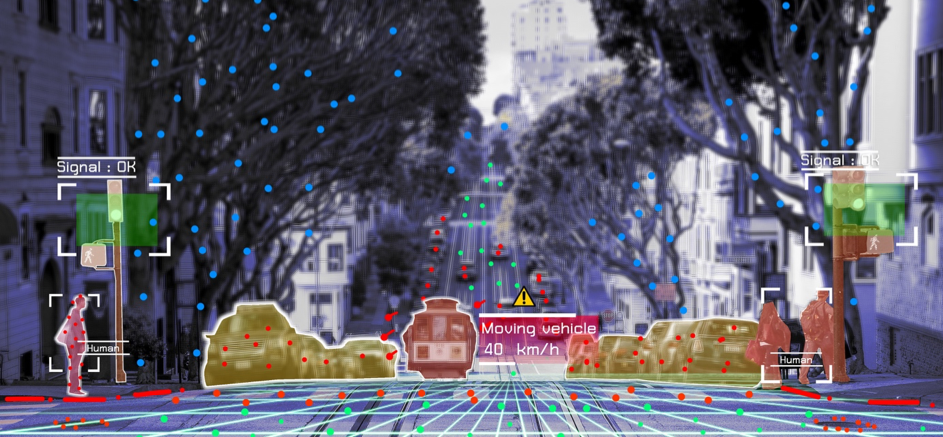FSF – Fiabilité et Sûreté de Fonctionnement
Objectifs
Concevoir des systèmes embarqués du futur capables d’exécuter les applications de signalisation ferroviaire et répondant aux défis industriels actuels de sûreté de fonctionnement, de cybersécurité et de tolérance aux pannes.
Le projet FSF a été lancé en mai 2013 afin d’encourager l’émergence d’une filière autour des plateformes d’exécutions pour systèmes ferroviaires, aussi bien grandes lignes qu’urbains. Plus précisément, les travaux menés au sein du projet ont répondu à trois grands objectifs :
- Organiser les ressources matérielles et le logiciel d’exploitation de telle sorte que la plateforme d’exécution atteigne les objectifs de performance, de sûreté de fonctionnement, de disponibilité et de sécurité pour un système donné ;
- Spécifier les services nécessaires et caractériser les ressources disponibles entre la plateforme d’exécution et les sous-systèmes logiciels pour que l’indépendance des cycles de conception des deux parties puisse être assurée ;
- Intégrer dans le workflow de conception logiciel un processus de validation continue prenant en compte les caractéristiques de la plateforme d’exécution configurée pour le système en développement.
Résultats

Publications
Publications du projet FSF
Ensuring Dependability and Performance for CPS Design: Application to a Signaling System
D. Cancila, F. Guenab, A. Koudri, E. Soubiran, L. Wouters
Elseveir Volume: Cyber-physical systems: foundation, principle and application, 2016Hard Real Time and Mixed Time Criticality on Off-The-Shelf Embdedded Multi-cores
A. Cohen, D. Potop Butucaru, M. Pouzet, E. Soubiran, Z. Zhang, V. Perrelle
ERTS, 2016
A meta-model for the Isabelle API
F. Tuong, B. Wolf
Archive of Formal Proof, 2015
Automatic selection and composition of model transformations alternatives using evolutionary algorithms
S. Rahmoun, E. Borde, L. Pautet
VAQUITA, 2015
Collaborative Model-Driven Engineering
L. Wouters
IRT SystemX, 2015
Integration the ISO/EIC 15288 Systems Engineering Standard with the PMBoK Project Management Guide to Optimize the Management of Engineering Project
R. Xue, C. Baron, P. Esteban, L. Zheng
CSD&M, 2015
Multi-Objectives Refinement of AADL Models for the Synthesis Embedded Systems (μ -RAMSES)
S. Rahmoun, E. Borde, L. Pautet
ICECCS, 2015
Architecture Models Refinement for Fine Grain Timing Analysis
E. Borde, L. Pautet, S. Rahmoun
RSP, 2014
Feasibility Study in the use of contract-based approaches to deal with safety-related properties in CPS
D. Cancila, R. Passerone, E. Soubiran
De-CPS, 2014
Meta-Programming in Isabelle/HOL The Case of UML
Longuet, F. Turon, B. Wolf
DigiCosme, 2014
Mixed-criticality in Railway Systems: A Case Study on Signalling Application
A. Cohen, V. Perrelle, D. Potop-Butucaru, E. Soubiran, Z. Zhang
Workshop on Mixed Criticality for Industrial Systems, 2014
PDP 4PS: Periodic-Delayed Protocol for Partitioned Systems
A. Jaouën, E. Borde, L. Pautet, T. Robert
AdaEurope, 2014
Reconciling performance and predictability on a many-core through off-line mapping
A. Jaouën, E. T. Carle, M. Djemal, D. Potop Butucaru, R. de Simone, Z. Zhang, F. Pecheux, F. Wajbuers
RePP, 2014
R Static mapping of real-time applications onto massively parallel processor arrays
T. Carle, M. Djemal, D. Potop Butucaru, R. de Simone, Z. Zhang, F. Pecheux, F. Wajbuers
14th International Conference on Application of Concurrency to System Design, 2014
Towards a Tool for Featherweight OCL: A Case Study On Semantic Reection
D. Longuet, F. Tuong, B. Wolff
OCL, 2014
New modelling approach to construct Test model for railway embedded systems
A. Mechraoui, P. Poisson, E. Soubiran
UCAAT, 2013
Timeline projet
[timeline src= »https://docs.google.com/spreadsheets/d/18WK-FWh3O4SWdpFvpyop-jfBEzLbQ4VXONorQ3cxH70/pubhtml » width= »100% » height= »900″ font= »Default » lang= »en » version= »timeline3″ ]


